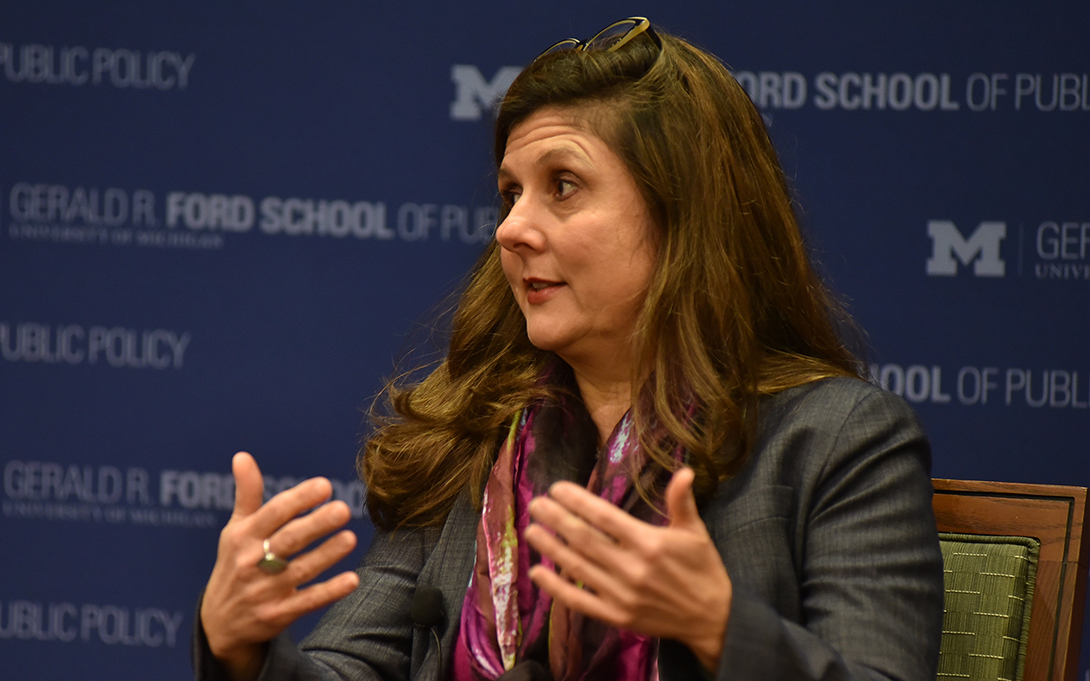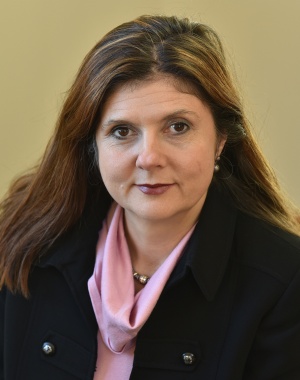
Ford School economics professor Betsey Stevenson has been commenting on the debate about raising the minimum wage and the contours of the COVID-19 recovery.
When the April jobs report was released, with significantly fewer jobs created than were expected, Stevenson told Chris Hayes on MSNBC, “There’s labor demand and labor supply in this report. This is not a report where employers are out there trying to hire millions of people in there and showing up for work. This is a report that shows the recovery is happening slower than people expected it. So, it’s the exact opposite of overheating. It’s exactly what I think a lot of people were worried about, which is that it’s going to be a little bit slow to get going.”
Commenting on the “K-shaped” recovery, she told CNBC that the slow comeback for the bottom tier is largely due to concentrated pain in industries that tend to employ low-wage workers. “We’re still not dining out as much as we previously did. We’re still not going to the gym in person as much as we did, or traveling as much as we did.”
The toll the recession has taken on women was explored by WNYC, where Stevenson noted, “It didn’t occur to me that it would hurt women more than men.” So many jobs were lost in education and services, which affected women more. She argued that the “insanity” of the U.S.’s lack of infrastructure, to support working parents, has forced women out of the labor force and will require bold political solutions post-pandemic.”
She made a similar point as quoted in The New York Times:
“We’ve now had 50 years of the revolution of women entering the labor force,” and the most basic necessities that make it possible for parents to fully participate in the work force are still missing, said Betsey Stevenson, a professor at the University of Michigan and a former member of the Obama administration’s Council of Economic Advisers. She paused a few moments to take it in: “It’s absolutely stunning.”
Regarding the battle over raising the minimum wage, she told CNBC, “I think it’s going to be hard to get bipartisan support to jump immediately to $15 an hour, but it’s clear we need some kind of raise in the minimum wage, that gets phased in to $15 an hour. We look around the world at other countries that have the wage at that level, and they manage to do so without widespread unemployment.”
Stevenson also tapped her service in the Obama administration in a segment on Freakonomics Radio which also looked at the minimum wage. “There is a constant back and forth where Democrats point to the fact that people simply cannot live on the minimum wage and Republicans point out that all sorts of people will lose their jobs because employers won’t want to hire people at that new, higher wage,” she noted.
She added, “If there’s a business that’s right on the margin, and the only way they can do that is by paying people no more than $7.25 an hour, then they’re just not adding that much to society. And if they see themselves only as generating value when they’re doing it off the backs of people who are being underpaid, I don’t want that business to keep existing. And I don’t think that’s harsh because there’s some other business that will come into its place.”
You can see and listen to the original references below:
Shocking jobs report, MSNBC, May 7, 2021
How COVID Has Crushed Working Women, WNYC, May 7, 2021
The Covid recovery still has a K shape, CNBC, May 4, 2021
Biden’s Proposals Aim to Give Sturdier Support to the Middle Class, The New York Times, May 2, 2021
It’s clear the U.S. needs a raise in the minimum wage, says economist, CNBC, May 2, 2021
Why economists think it’s mad to buy individual shares, Sydney Morning Herald, May 1, 2021
The True Story of the Minimum-Wage Fight, Freakonomics Radio, April 29, 2021
